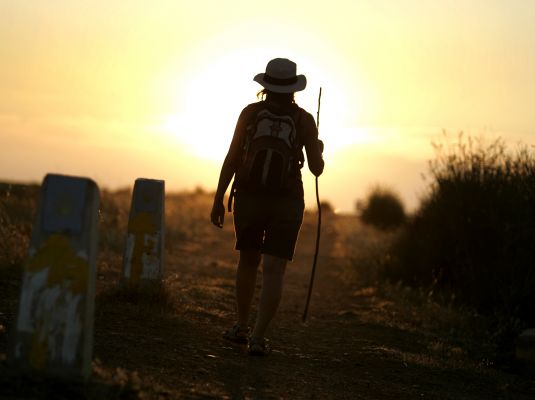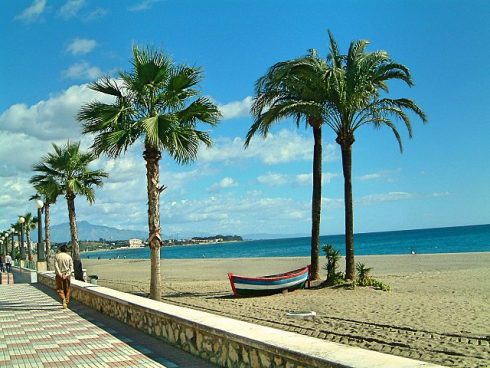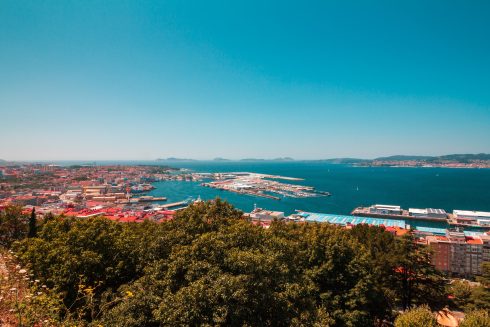SPAIN is a country of varied landscapes, rich culture, and fascinating history, all of which combine to make for some thrilling places, and what better way than exploring them on your own two feet.
Here is our pick of the twelve most epic walks you’ll want to take in Spain.
Camino de Santiago
The Camino de Santiago is probably the most famous trail in Spain, and its history is a significant reason why.
For thousands of years, Christian pilgrims followed the trails on their journeys through Spain. Wherever you are in Spain you’ll likely find yourself on one of the well-trodden routes that lead to Santiago but the most popular route begins at French border and crosses the breadth of northern Spain.
This most popular route begins in the Pyrenean town of St. Jean-Pied-de-Port in France and ends at the Cathedral in Santiago de Compostela some 500 miles away in the northwestern region of Galicia.
The trails are well-marked and make for an easy hike. Given its popularity, you’re also likely to run into other travelers, making it a fun social activity.
If you’re looking to avoid the most crowded season while still enjoying good weather, April, May, June, and September are the months to go.
Montserrat
If you’re looking for a cultural experience with less of the fanfare that comes with the Camino de Santiago, Montserrat offers another pilgrimage walk steeped in religious history.
Located near Barcelona, the site is home to a monastery, a Black Madonna statue, and a place where the Virgin Mary is said to have been sighted.
One trail allows you to walk from the base of the mountain to a monastery. Another option is to get a head start with cable cars, which can bring you up to routes that lead to the summit. Still other trails will afford you views of the Pyrenees mountains and the Llobregat valley.
Picos de Europa Trail
For those hoping for a more nature-filled hike, the Picos de Europa trail might be for you. Located in Spain’s oldest national park about 2.5 hours west of Bilbao in northern Spain, the routes (which range in difficulty level) are home to varied wildlife and beautiful views.
The most popular of these is the Ruta del Cares, which totals 12 km in length. Carved into the side of the surrounding landscape as it cuts through streams and rocks alike, the trail offers a thrilling journey from Asturias to León as the Cares River rushes below.
El Cañón de Río Lobos:
Rios Lobos Canyon National Park, located in the province of Soria in central Spain, is another amazing spot for nature-lovers.
The park is home to numerous wildlife, including butterflies, falcons, vultures, and otters.
In addition, the site also has amazing geographical features, including caves, ponds, and valleys. Once home to cavemen in prehistoric times, you can now hike along the 25 km route with little difficulty. Other features include the Hermitage of San Bartolomé and the Castle of Ucero, both built in the 12th century.
Pico Sobarcal Trail
The Pico Sobarcal Trail in northeastern Spain will be most attractive to experienced hikers looking for a challenge. Located in the Pyrenees mountains, which make up the border between France and Spain, the most advanced hikers can reach the summit of Pico Sobarcal in 7 hours. For those less advanced, hiking partway up the trail will still afford you great views of the surrounding mountains and the vistas below. You might even come across a few breathtaking waterfalls on your way.
The Mulhacen:
If you have a little less experience hiking but are still hoping to reach the summit of a mountain, the Mulhalcen in Sierra Nevada National Park offers that opportunity.
Located in southern Spain near Granada, it is the highest mountain in mainland Spain, standing at 3,500 meters.
There are multiple trails to reach the top, with the easiest and most popular being the Mirador de Trevelez, which goes up the southern side of the mountain with the help of a bus (although it only operates in summer).
Still, if you are looking for a challenge, scaling the northern side of the mountain will suffice.
Caminito del Rey:
“The King’s Path” might in recent times more accurately have been called “the daredevil’s path,” as its worn down nature made it notoriously hazardous to hike, ranking among the most dangerous in the world.
But after recently undergoing renovations, the trail, located outside of Malaga in southern Spain, is now a go-to spot for hikers of any level.
You will experience views to treasure, as the route takes you through its varied landscapes. It is also fairly quick: 7 miles from Ardeles to Alora, it takes about 4 hours to complete.
Merida, Spain:
Walking around Merida, the capital of Extremadura in the southwest of Spain, will not be a typical uninterrupted hike along a designated path, but that makes it no less epic.
That is because the town was once called Emerita Augusta, an important city in ancient Rome, and is home to the most impressive ancient Roman ruins in Spain.
Many of the ruins are within walking distance of each other, so you can see the remains of aqueducts (with 27m high arches), an amphitheater, and the Roman circus where chariot races and even gladiator fights were held, among other cool buildings and structures.
You can even contextualize the experience with a visit to the National Museum of Roman Art. It usually takes about two days to see all the sights.
Cami del Bons Homes
More history abounds along the “Path of the Good Men.” This route is the same one taken by the Cathars who fled during the Spanish Inquisition during the 13th century.
The trail extends from southern France through Catalunyaa in northeastern Spain, and takes five days to hike.
For a more low-key experience, day treks are also possible.
A trek from Gosol to Baga offers a good range of experiences as you’ll travel through forests, meadows, and small towns. You might even encounter some ancient ruins along the way!
Camino de Ronda:
For those looking to add a bit of beach fun to their hiking experience, Camino de Ronda in northeastern Spain is the route for you.
It runs from Portbout to Ulldecona in Costa Brava, with the Mediterranean Sea on one side of you and lush forest on the other. The entire trail will take 10 days to complete, but it can also be done in shorter stages.
In addition to having many beaches you can relax at, there are also fishing villages and hidden coves to explore along the way.
La Ruta de las Caras:
La Ruta de las Caras in Buendía in the Cuenca province of Castilla-La Mancha, central Spain also offers an opportunity for swimming. But as the name suggests, the route is most intriguing because it has eighteen faces carved into boulders along the way.
Forming a sort of natural museum, the sculptures were created beginning 1992 on by various artists. It certainly offers a unique experience for hikers with an interest in art.
Cumbre Vieja
Departing mainland Spain, this list closes out with Cumbre Vieja, on the Canary Island of La Palma.
Located on the ridge of a dormant volcano which forms most of the island, its volcanic landscapes are out of this world.
The whole trail will take 8 days to walk, but there are multiple shorter routes as well, such as the Ruta de los Volcanes, which is a hike around the rim of the crater.
Some have likened the scenery to something you might find on Mars. So if you want an out of this world experience without having to leave earth, this might be the hike for you!
READ ALSO:
- Looking for an adrenaline rush? These are the ultimate zip-lining locations in Spain’s Malaga
- Five incredible castles in Spain’s Malaga every history-lover should visit
- Check out The Olive Press travel section for more inspiration
Click here to read more Olive Press Travel News from The Olive Press.








